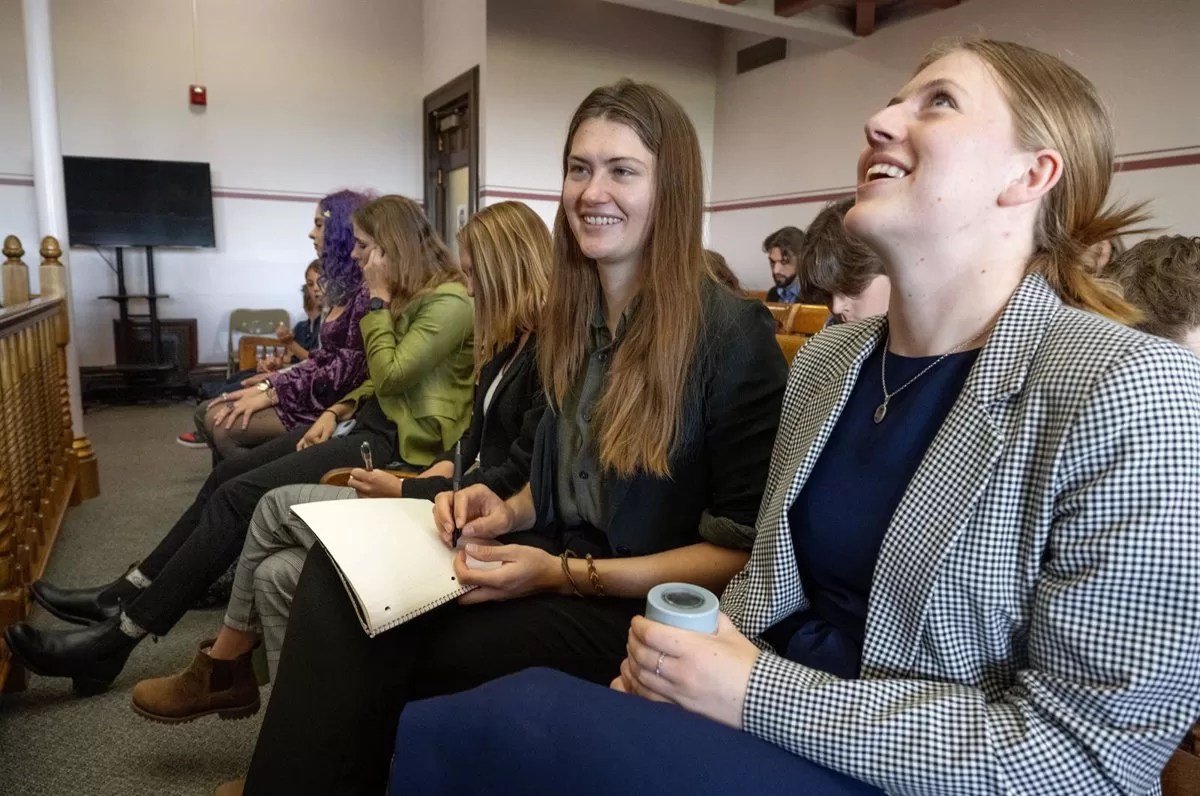Nehammer said in the series of interviews with the party leaders at the turn of the year that the ÖVP and the Greens had passed 1,066 laws so far. Recently, however, there has been a lot of criticism of those announced reforms on which the coalition parties could not agree. For example, the Freedom of Information Act is awaiting approval, as is the long-awaited Climate Protection Act.
This is due to the “need for quick action”, said Nehammer on Wednesday evening. The past three years have been “more than eventful” and have raised problems that have nothing in common with the contents of the government program. The government has stabilized the economy during the pandemic and since the start of the Ukraine war. “These are not random products, but hard political work”. As a result, however, some laws will be postponed, but the legislative period will last until 2024, according to Nehammer.
Chancellor Nehammer on government work
As part of the ZIB2 New Year interviews of the party leaders, ÖVP party leader and Chancellor Karl Nehammer commented on the results of the turquoise-green government work so far.
Faster RRP
At the retreat in Mauerbach, the coalition parties agreed on several key points on Tuesday and Wednesday. A package of measures is intended to ensure that the expansion of renewable energies will be faster in the future, including the amendment to the environmental impact assessment (EIA). It should enable processes for large energy transition projects such as wind farms to be carried out more quickly. Among other things, there should no longer be any double checks in the procedures in the future. If, for example, the landscape has already been checked when areas are designated, then a new check is not necessary in the approval process.
In federal states in which there is no spatial energy planning, it should in future be possible to start the EIA procedure without a dedication from the community. The EIA procedure examines the suitability of the site, and the approval of the municipality is also obtained as part of this. Projects for the energy transition should also be given a high level of public interest in the future. This means that complaints should no longer automatically have a suspensive effect. An increase in photovoltaic subsidies and an expansion of biogas production were also announced.
Harsh criticism of the opposition
The opposition was not very enthusiastic about these points. In view of the inflation, the SPÖ spoke of the government’s “next belly spot”, the FPÖ saw the “Austrians finally written off”. NEOS criticized that there were “no results, only announcements”. And environmental NGOs such as the environmental umbrella organization, the WWF and the Umbrella Association for Renewable Energy Austria (EEÖ) still lacked a Renewable Heat Act (EWG) and the Climate Protection Act.
Results of the government exam
On Wednesday, the turquoise-green federal government presented a well-known reform of environmental impact assessments and further simplifications for the expansion of renewable energies. The government does not intend to present the agreement on criminal law relating to corruption until Thursday. But there are hardly any compromises when it comes to unemployment insurance, climate protection and migration.
Blocked partial retirement before the end
During the exam, an end to the blocked partial retirement was announced relatively surprisingly. At the moment you can use the blocked variant, with which you initially work fully and then not at all, from 60. With the consent of the employer, a smooth transition to retirement is created. Employees lose neither pension benefits nor entitlements to sick pay or severance pay or entitlements from unemployment insurance. Starting next year, the option to start the variant will increase by six months per year.
The federation of trade unions and the Chamber of Labor reacted with outrage to the abolition of blocked partial retirement. The ÖGB saw the end of an “important and necessary support” for older employees – especially for those in a mentally or physically demanding job. The AK primarily saw women as affected.
For Christine Mayrhuber, pensions expert at the Economic Research Institute (WIFO), on the other hand, the approach of using older employees to cushion the labor shortage made sense. Above all in the group of the over 55-year-olds there is an “incredible untapped potential”. However, it is difficult to quantify how many workers one can have with the right incentives.
Apparently, there was also an agreement on the new anti-corruption law that had been under discussion for months. It is to be presented on Thursday by Justice Minister Alma Zadic (Greens) and Constitutional Minister Karoline Edtstadler (ÖVP).


